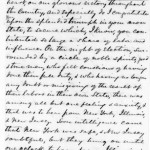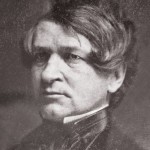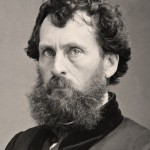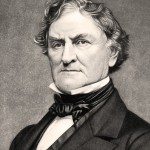Although Lincoln won only 39.9% of the popular vote (far more than the 29% which the runner-up, Douglas, received), he took a solid majority of the electoral votes, 180 out of 303. He carried all the Free States except New Jersey, where the Bell, Breckinridge, and Douglas forces created a fusion ticket at the last moment and took 52.1% of the ballots cast. But because some anti-Lincoln voters refused to go for the fusion slate, the Republicans received four of the state’s seven electoral votes. According to John Bigelow, “That little State, the property of a railroad company [the Camden and Amboy] which runs through it and twirls it around like a Skewer[,] voted against him because it has the misfortune to be inhabited by two men, each of whom wished to be Secretary of the Navy and hoped by making the State look insecure, to get an offer of terms.” Those men were William L. Dayton and William Pennington, former speaker of the U.S. House. Their lackluster support of the ticket was widely criticized.
Editor’s Comments:
This excerpt was adapted with permission from the unedited manuscript of Michael Burlingame’s Abraham Lincoln: A Life (2008). The full-text PDFs are available from the Lincoln Studies Center at Knox College. The published version is available from Johns Hopkins University Press. Michael Burlingame is the Chancellor Naomi B. Lynn Distinguished Chair in Lincoln Studies at the University of Illinois at Springfield.





